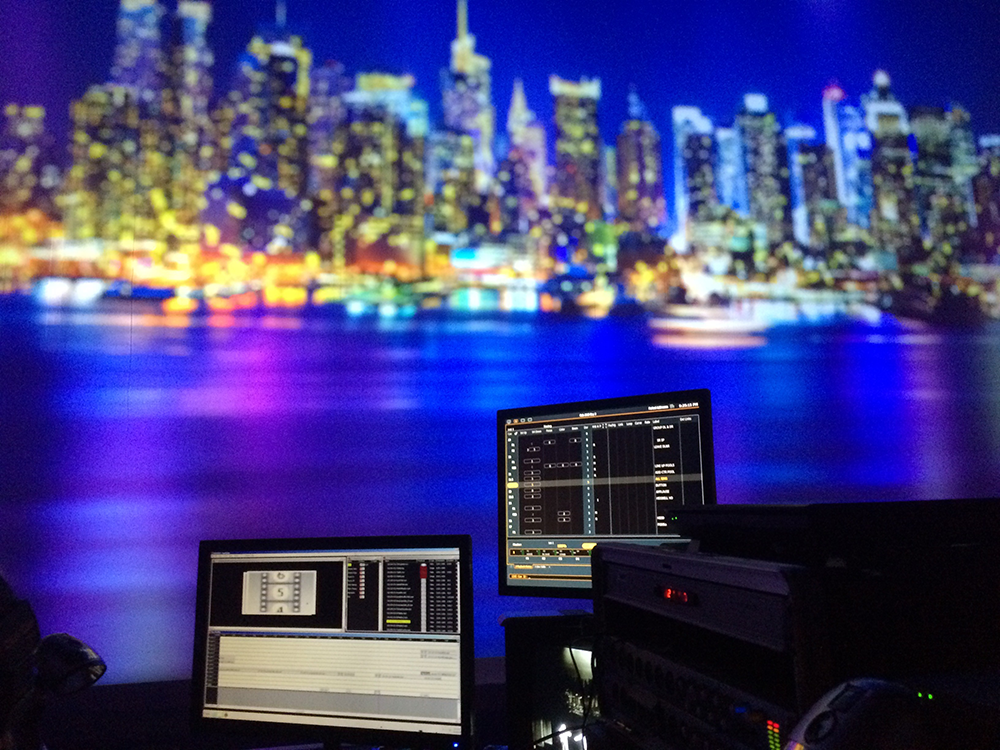Understanding the Basics of Event Production
The ins and outs of event production require a comprehensive understanding of several fundamental aspects, including the establishment of clear objectives, thorough budgeting, and critical location choice. As we explore these crucial factors, one have to take into consideration exactly how they interrelate and influence the total success of an event.
Defining Event Goals
Defining occasion goals is a vital action in the occasion manufacturing process, acting as the foundation upon which all preparation and execution are built. Clear purposes offer direction, making certain that all stakeholders comprehend the event's objective and desired end results. These goals should be details, measurable, possible, appropriate, and time-bound (SMART), which enables effective analysis of success post-event.
Identifying the target market is vital fit the goals. Understanding their demographics, assumptions, and interests makes it possible for event coordinators to customize content and experiences that reverberate with attendees. Furthermore, straightening the goals with more comprehensive organizational goals promotes assistance from leadership and stakeholders, making sure that the occasion contributes to the general objective.
Engagement and interaction are vital components to consider when defining goals, as they considerably effect participant satisfaction. It is essential to communicate these objectives clearly to all team members included in the preparation procedure. This clearness boosts cooperation, concentrating initiatives on attaining an unified vision. By establishing well-defined objectives, event producers can create a structured framework that guides decision-making and resource allocation, ultimately bring about a successful event.
Budgeting for Success
Effective budgeting is essential for the effective manufacturing of any type of event, as it provides an economic structure that supports all planning activities. A well-structured spending plan permits event planners to allot sources effectively, guaranteeing that every aspect of the occasion is sufficiently funded while minimizing the threat of overspending.
To produce an effective budget, beginning by determining all potential expenditures, such as location prices, catering, entertainment, tools leasings, and marketing. It is vital to categorize these expenditures into fixed and variable prices, which helps in understanding which elements are non-negotiable and which can be readjusted based on economic constraints.
In addition, income resources ought to be recognized early in the budgeting process. This consists of ticket sales, sponsorships, and merchandise sales. By approximating potential earnings, organizers can align their expenditures accordingly, making sure that the occasion remains monetarily viable.
Routine surveillance of the budget plan throughout the preparation process is important. This permits adjustments to be made as required, keeping financial discipline. Eventually, a reliable budget not only safeguards versus unanticipated costs however additionally boosts the overall quality and experience of the event, guaranteeing its success.
Venue Selection Methods
Selecting the best location is an essential component of successful event production, as it establishes the phase for the total experience. The very first step in venue selection is to define the event's goals and audience, which will direct the option of place and capability. Factors to consider such as access, setting, and available amenities should align with the event's theme and purpose.
Following, evaluate the place's ability to suit your anticipated variety of guests while making sure convenience and interaction. It is vital to check out prospective locations face to face to evaluate their layout, centers, and total charm. Furthermore, go to the website evaluate logistical aspects including parking schedule, public transportation gain access to, and any type of restrictions that might impact the occasion.
Budget plan constraints are also extremely important; make sure that the location fits within financial criteria while using required services. Agreement settlements should be come close to with diligence, looking for openness concerning added expenses, termination plans, and liability insurance coverage.
Finally, consider the place's credibility and previous performance for comparable occasions (Audio Visual Services). Engaging with previous customers can provide useful understandings into the place's reliability and service top quality, ultimately helping in making an educated decision

Technical Manufacturing Aspects
Technical production components act as the foundation of any type of occasion, making sure that all audio, aesthetic, and lighting parts work sympathetically to produce an immersive experience. These components include a variety of methods and technologies intended at delivering material efficiently and engagingly.
Stereo are vital, involving microphones, speakers, and mixing devices to ensure clear sound distribution. Premium sound is vital for keeping audience involvement, especially in bigger places. Visual elements consist of projection systems, LED displays, and video clip feeds, which enhance the aesthetic narrative of the event and sustain the total theme.
Lights plays a critical function in leading and setting the state of mind target market focus. A well-designed illumination plan includes different strategies, such as limelights, ambient lighting, and color cleans, to create dynamic ambiences appropriate for different sections of the occasion.
In addition, technical production elements need careful preparation and integration. This includes pre-event audio checks, video clip wedding rehearsals, and lighting tests to deal with prospective difficulties prior to the event begins. Eventually, a cohesive technical production technique not only elevates the event experience yet additionally mirrors the professionalism and reliability and interest to detail that participants expect.

Group Coordination and Roles
Effective occasion manufacturing rests on smooth group coordination and clearly defined functions among all participants. For an event to run efficiently, each staff member have to recognize their responsibilities and how they add to the overall vision. This begins with establishing an extensive organizational structure that defines functions such as event manager, logistics coordinator, technical director, and marketing specialist. Each role carries specific duties that must be performed together with one another.
Efficient communication is vital in this joint setting. Audio Visual Services. Routine meetings and updates ensure all employee are lined up and can adapt to any kind of modifications or difficulties that arise. Making use of job administration devices can promote this communication, allowing for real-time updates and job tracking
Moreover, cultivating a culture of teamwork is crucial. Urging partnership amongst diverse capability not only boosts analytical yet likewise promotes a favorable working ambience. When team participants feel valued and encouraged, their efficiency increases, eventually leading to an extra successful occasion.
Conclusion
Finally, an extensive understanding of occasion production incorporates defining clear goals, establishing a robust spending plan, choosing an ideal location, taking care of technical manufacturing components, and guaranteeing reliable team sychronisation. Each part plays a vital duty in the overall success of an occasion. By meticulously dealing with these principles, event coordinators can boost the attendee experience, optimize sources, and achieve preferred end results, thereby contributing to the occasion's total effectiveness and impact within the designated target market.
The intricacies of event production need a detailed understanding of numerous foundational aspects, including the facility of clear purposes, thorough budgeting, and strategic location choice.Specifying occasion goals is an essential action in the event production process, serving as the foundation upon which all planning and execution click to find out more are developed. By establishing well-defined goals, event producers can produce a structured framework that guides decision-making and resource allotment, eventually leading to a successful event.
In conclusion, a comprehensive understanding of event production encompasses specifying clear purposes, developing a durable budget plan, choosing a proper location, handling technical manufacturing components, and making certain reliable group control. By diligently attending to these basics, event planners can boost the participant experience, maximize resources, and achieve wanted end results, consequently contributing to the occasion's total efficiency and impact within the visit this site right here desired target market.
Comments on “Tailored Audio Visual Services for Memorable Experiences”